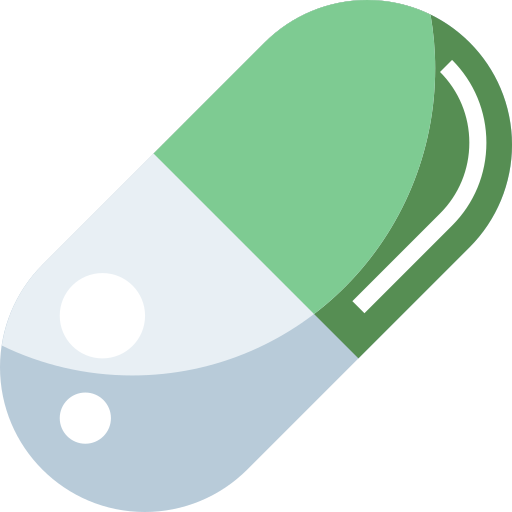
Orlistat
120 mg
Incepta Pharmaceuticals Ltd.
Product Details
Description
Orlistat is a potent, specific and long-acting lipase inhibitor. It exerts its therapeutic activity in the lumen of the stomach and upper small intestine by forming a covalent bond with the active serine site of gastric and pancreatic lipases. The inactivated enzyme is thus rendered unable to hydrolyze dietary fats in the form of triglycerides into absorbable free fatty acids and monoglycerides. As undigested triglycerides can not be absorbed, a caloric deficit arises which has a positive effect on weight control. Systemic absorption of orlistat is therefore not needed for the activity. At the recommended therapeutic dose of 120 mg three times a day, orlistat inhibit dietary fat absorption by approximately 30%.
Adults: Orlistat is indicated in conjunction with a mildly hypocaloric diet for the treatment of obese patients with a body mass index (BMI)>30 kg/m2 and overweight patients (BMI >28 kg/m2 ) with associated risk factors such as type II diabetes, hyperlipidemia and hypertension. Treatment with Orlistat should be discontinued after 12 weeks in patients who have not lost at least 5% of their body weight as measured at the start of drug therapy. Adolescents (12 years & older): Obese adolescents should be treated with Orlistat only if an adequate reduction of body weight cannot be achieved by means of diet & increased physical activity. Treatment with orlistat should be considered in particular if complications of obesity are present.
Orlistat is contraindicated in patients with chronic malabsorption syndrome, in patients with cholestasis and in patients who are hypersensitive to orlistat or to any of the other ingredients of the capsules.
Common: Undesirable effects of Orlistat are largely gastrointestinal in nature. Common gastrointestinal side effects are oily spotting from the rectum, flatulence, fecal urgency, oily or fatty stool, abdominal discomfort etc. Rare: Influenza, anxiety. headache, fatigue etc may rarely occur in some patients. Rare cases of hypersensitivity have been reported. Main clinical symptoms are pruritus, exanthema, urticaria, angioedema and anaphylaxis.
Use in pregnancy & lactation: No clinical data are available on pregnancy exposed to Orlistat. As it is not known whether Orlistat is excreted in breast milk. Orlistat should not be used during breastfeeding.
Organic causes of obesity (e.g. hypothyroidism) should be excluded before prescribing Orlistat. Orlistat and cyclosporine should not be coadministered. Cyclosporine should be taken at least 2 hours before or after Orlistat in patients taking both drugs. Cyclosporine level should be measured and frequently monitored. In clinical trial, the decrease in body weight with Orlistat therapy was less in type II diabetic patients than in non-diabetic patients. Antidiabetic drug treatment should be closely monitored during Orlistat therapy. Because of the improvement in glycemic control, the dose of oral antidiabetics or of insulin may need to be adjusted. Patients should be advised to adhere to the dietary recommendations. The probability of occurrence of gastrointestinal side effects may increase when Orlistat is taken with a fatty meal. The daily intake of fat should be distributed between three main meals. Patients should be strongly encouraged to take a multivitamin supplement that contains fat soluble vitamins to ensure adequate nutrition because orlistat has been shown to reduce the absorption of some fat soluble vitamins & beta-carotene. In addition, the levels of vitamin D & beta carotene may be low in obese patients compared with non-obese patients.
Single doses of 800 mg Orlistat and multiple doses of up to 400 mg three times a day for 15 days have been studied in normal weight and obese subjects without significant adverse findings.
Appetite suppressant drugs/Anti-obesity drugs
Store in cool & dry place below 30°C, protect from light & moisture. Keep out of reach of children.
-
Support 24/7
Call us anytime -
100% Safety
Only secure payments